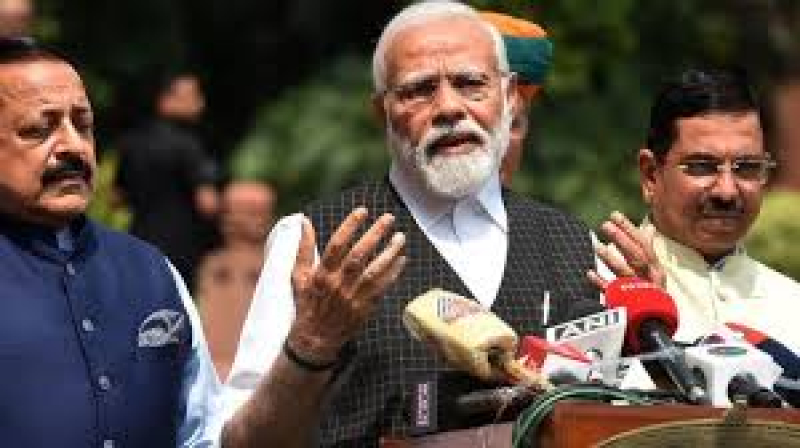- IMF Forecasts Bangladesh GDP to Rebound to 4.7% in FY26 |
- Arab Allies Urge Restraint as Trump Presses Iran Talks |
- EC asks printing presses not to print election posters |
- Protect your votes, conspiracies still on: Tarique to voters |
- US ambassador warns of China's growing manufacturing dominance |
Indian lawmakers attend five-day special session

The announcement of the session last month had taken opposition lawmakers by surprise.
On Monday, Mr Modi said that the session's duration may be "short" but that it would include "historic decisions".
According to the government, eight bills have been listed for discussion.
But opposition leaders have questioned whether a special session was necessary to discuss these bills when lawmakers were set to meet later this year for the winter session of parliament. The government could change or expand the session's agenda during the course of the week.
Indian lawmakers usually meet for regular business thrice a year in parliament - a budget session, a monsoon session and a winter session.
Special sessions are not that common - according to legislative expert Chakshu Roy, the government has sometimes convened them "for specific occasions, like commemorating parliamentary or national milestones".
The government has asked lawmakers to attend a function on Tuesday that will "commemorate the rich legacy" of India's parliament.
After the function, the session will be shifted to India's new parliament, which Mr Modi inaugurated in May amid a boycott by opposition leaders. This will be the first session to be held in the new building, which replaces the older, British-era parliament.
The announcement of the session last month had sparked criticism from opposition leaders, who questioned the "secrecy" over the agenda. Some commentators speculated that the government might call early elections or even change the country's name from India to Bharat (after a controversy erupted over a possible name change).
Other said the government might introduce a historic bill that will reserve seats for women in state legislatures and parliament.
The government has not commented on or confirmed any of this.
Last week, the government had released a "tentative agenda" for the session, which listed four bills for debate, including a controversial bill that will change how India's chief election commissioner is appointed.
Opposition parties have objected to the bill, calling it "undemocratic" and saying that it will reduce the independence of the Election Commission and its officers.
The government has not confirmed whether the bill will be discussed during the five-day session, reports BBC.

